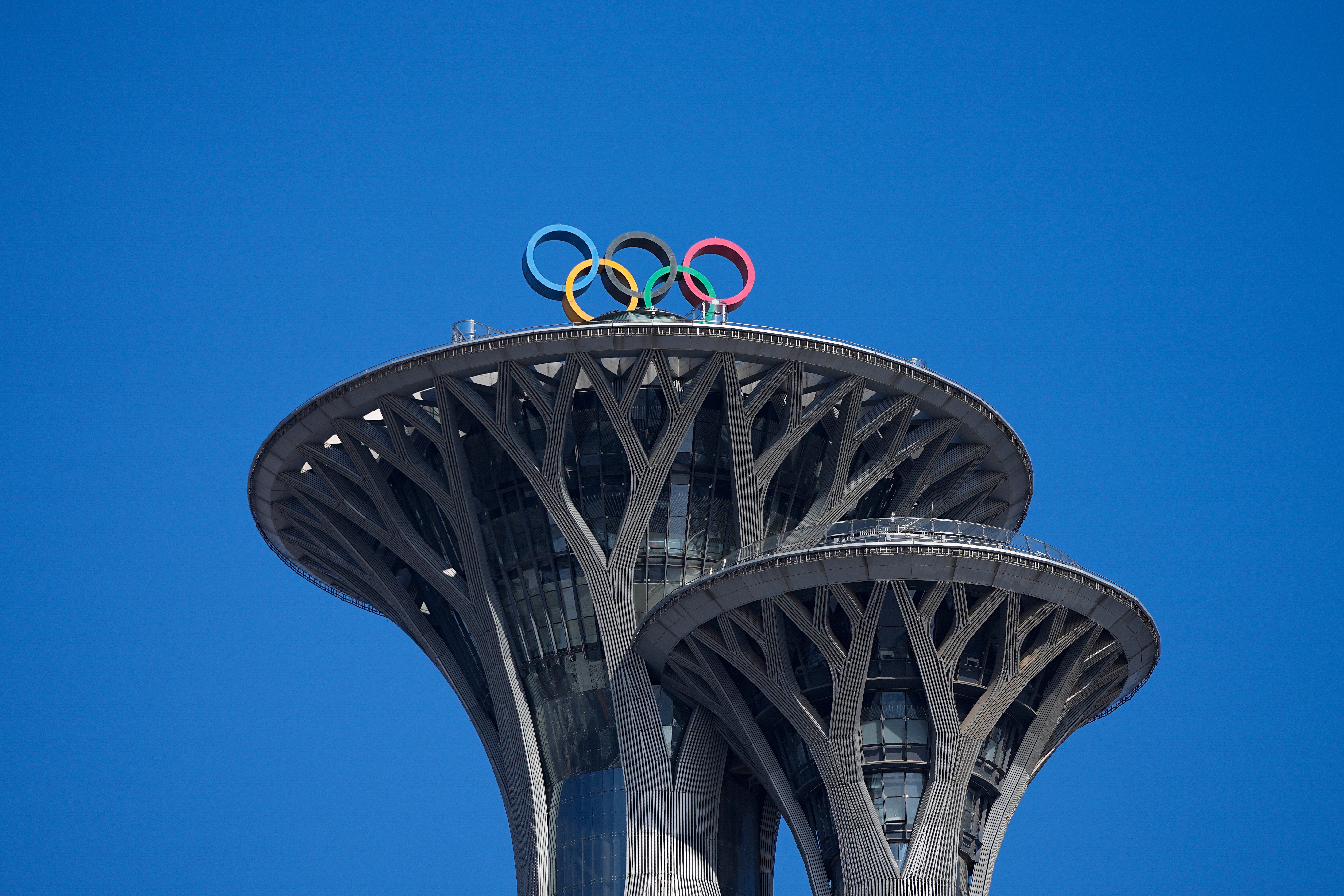Beijing promises to be an off-piste, off-page and off-putting pandemic Olympics
If Covid precautions were strictly enforced at last summer’s delayed Tokyo Games, Beijing will take things to a whole new level

Bobble hat? Check. Burner phone? Check. Stricken by human rights concerns and spyware fears, all but paralysed by the ongoing global pandemic, the Beijing Winter Olympics requires a kit list – and a conscience – like no other.
If Covid precautions were strictly enforced at last summer’s delayed Tokyo Games, Beijing will take things to a whole new level, by effectively sealing off the event from the Chinese populace in order to evade any chance of spreading the Omicron variant.
Olympic dreams 2022-style will be fashioned in front of empty grandstands bar a bunch of hazmat-besuited officials, its stars careering over finish lines in near silence, nostrils raw from rigorously enforced daily testing procedures.
It is not just fears of the encroaching pandemic – and the very real prospect of athletes seeing their Olympic dreams wither in an isolation facility – that has led many to question whether the Beijing Olympics should be taking place at all.
As they shovel millions of cubic tons of artificial snow onto the pistes of Zhangjikou, a three-hour bus crawl from the capital, there are no such weather-related problems in mountainous Xinjiang, in China’s far north west, around which allegations of genocide and ongoing ethnic cleansing swirl.
Tangible fears of accreditation stripping or deportation, fuelled by an admission from a member of the Beijing organising committee that athletes could face “punishment” for speaking out, do tend to put the opening day of moguls qualifying into sharp perspective.
But the ice-cold fact remains that a team of 50 British athletes will be heading to the Chinese capital with little more on their minds than writing their names in the nation’s Winter Olympic folklore alongside the likes of Lizzy Yarnold, Amy Williams and Rhona Martin.
After all, it is not the responsibility of any of them to dictate or even opine upon the International Olympic Committee’s decision to go ahead with these Games amid such an unprecedented geopolitical climate.
A target range of between three and seven could conceivably see Team GB burst out of the Beijing bubble with a record number of Winter Olympic medals to their name, although matching the five-medal haul from each of the last two games seems a more realistic target.
Mixed curlers Bruce Mouat and Jennifer Dodds, and snowboard-cross star Charlotte Bankes head into the Games as reigning world champions and clearly the country’s strongest medal bets.
Mouat and his men’s curling team also claimed world silver in 2021, while Dave Ryding’s historic slalom triumph in Kitzbuhel in January has made the once-outrageous prospect of a British Olympic alpine medal a real possibility.
Brad Hall burst onto the World Cup bobsleigh podium six times this season over two and four-man disciplines, while the freestyle and snowboard contingent also boast previous World Cup medallists in the likes of Katie Ormerod, Kirsty Muir and James Woods.
From an international perspective, American snowboarding great Shaun White will compete in his last Winter Games while at the other end of the spectrum, 15-year-old Kamila Valieva is expected to light up the women’s figure skating competition.
The era of the Winter Olympics being staged above twinkling alpine vistas, celebrated as an anachronistic and slightly anarchic quirk of the annual sporting calendar, ended when they snuffed out the flame over Lillehammer in 1994.
The subsequent doubling down on ‘faster, higher, stronger’ has sadly made the Winter Games as lugubrious as its summer counterpart, shifted attention to the capacity of snow-making machines and the faux-PC nonsense that is the swathe of mixed team relays on the schedule.
Shovel ever more cubic tons into the mix, throw in a pandemic, a social-media firewall and those ever-present allegations of genocide, and we are where we are: an off-piste, off-page and off-putting Olympics, brought to you soon via burner phone.
Join our commenting forum
Join thought-provoking conversations, follow other Independent readers and see their replies
Comments
Bookmark popover
Removed from bookmarks